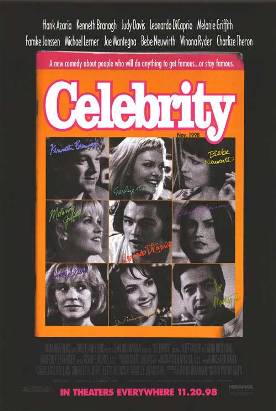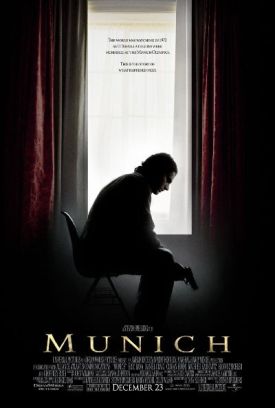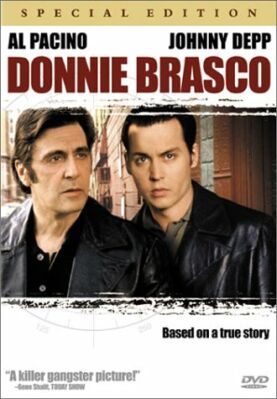Memento
Let it not be said that Memento, written and directed by Christopher
Nolan, has nothing to say. On the contrary, it has a very serious point to make
about the way that people manufacture their own reality. In particular, as its
subject is revenge and memory-loss, it encourages us to wonder if all revenge is
like this. Maybe it is never the same person who commits the original crime and
who then is punished for it, nor the same person who suffers an injury and then
avenges it. Maybe that’s why
we—at least the enlightened among
us—don’t
like the idea of revenge. The trouble is that, like the more portentous and
self-consciously
“profound”
pop singers, it tries to push its insights too far and never really gets over
its adolescent awe at the Heraclitean paradox that reality is fluid.
By the end of the movie this mildly but rather speciously interesting
reflection has turned into the stupefyingly boring question: Does
“reality”
exists at all? Heavy, huh? The real appeal of the film, however, is in its
style. In order to simulate the outlook on the world of a man, Lenny (Guy
Pearce), whose short-term memory has been destroyed, the story is told
backwards. Over the opening credits we see a hand, with a tattoo on it, holding
a Polaroid snapshot of what looks like a murder scene. The hand shakes the photo
as if to dry it, but instead of emerging from white formlessness the image fades
into it. There follows a reversal of the whole process which culminated in the
murder, from the reinsertion of the photo into the camera to the restoration to
life of the victim.
We are never told how it is that Lenny knows that his wife was raped and
murdered by a man known as “John
G” (or possibly Jim G.) and that his
own injury on the same occasion is what has deprived him of his memory, but he
has the information tattooed on his body. He uses the tattoos, the Polaroids,
notes to himself and “habit and
routine” to carry on his pursuit of
the alleged rapist/murderer even though he
can’t remember from one day to the
next what progress he has made. He also has good reasons for supposing that
various people who seem to be helping him are actually using his lust for
vengeance, and his infirmity, for their own purposes. Perhaps, as his rather
louche companion and assistant Teddy (Joe Pantoliano) suggests at one point, he
has already found and killed the man and
can’t remember it. Perhaps the crime
never even happened.
Lenny remains somewhat strangely unperturbed by all such reflections.
“You can’t trust a man’s life to your
little notes and pictures,” Teddy
insists to him.
“They’re
not reliable.”
“Memory is
unreliable,” Lenny replies cooly, and
he continues doggedly to hunt a killer he
doesn’t even know exists.
“My wife still deserves
revenge,” he insists.
“The world doesn’t disappear when you
close your eyes.” It is an admirable
article of faith to cling to for such a
man—a man for whom the world
does disappear when he closes his eyes. Sometimes Mr. Nolan exploits the
comedy of this situation. At one point Lenny finds himself running after, he
thinks, a bad guy—until the bad guy
shoots at him and he realizes that he is actually running away from him.
It is because we know there is such a momentous difference between running
towards and running away that the make-believe world in which a man cannot tell
it is both funny and terrifying.
Likewise, we witness the cliché in which a man wakes up next to a
partially-dressed woman and can’t
remember who she is. For Lenny, there is almost a comfort in such a sexual
faux pas, as it re-unites him at least with that portion of humanity
which has at one time or another been drunk enough to do the same thing. In the
same way, there must be a certain satisfaction in being able to enjoy the
freedom of simply answering
“no”
when the woman, Natalie (Carrie-Anne Moss) asks him if he will remember her.
Natalie is a bar-maid, and when Lenny describes his condition to her in the bar,
she says: “There are a lot of guys in
here like that.”
The film’s funniest moment,
however, comes when Lenny wakes up in a sleazy motel room to the sound of a
muffled thumping in the closet. He flings open the closet door and finds a man
gagged and bound there. Tearing the duct tape off his mouth, he asks:
“Who did this to
you?”
“You
did,” the man replies. And Lenny gags
him again. The movie is clever enough to have done a better job as a comedy than
Clean Slate, a mostly unfunny Dana Carvey vehicle of 1994 with a similar
theme. But its ambitions of seriousness spoil it, I think. Near the end, Lenny
returns—too self-consciously, too
portentously—to the metaphorical
implications of his condition: “I have
to believe in a world outside my own
mind,” he says.
“I have to believe that when my eyes
are closed, the world is still there….still
there.” We all have to believe that.
But once you’ve said so there is
really not very much else to say on the subject.
Discover more from James Bowman
Subscribe to get the latest posts to your email.







